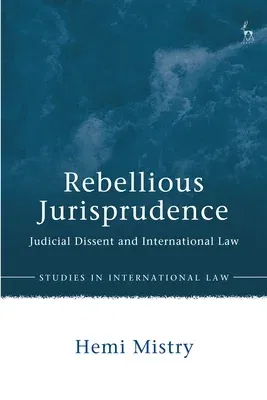Rebellious Jurisprudence is the first attempt to construct a theory of
judicial dissent as a matter of general international law. Although
dissenting and separate opinions are typically associated with the
common law tradition, the right of judges to issue such opinions has
been recognised and reproduced across most international tribunals.
Despite this, until now no attempt has been made to theorise the
institutionalisation of judicial dissent in international law and its
implications for how international tribunals discharge their functions.
This study offers a theory of judicial dissent that addresses its
ubiquity in international law, notwithstanding the often-fundamental
disagreement between the principal legal cultures as to its effects.
Rebellious Jurisprudence explores how insights from social
anthropology - specifically ritual theory - supplement conventional
accounts of judicial dissent. Whereas existing literature focuses upon
'revolutionary' or 'radical' dissent, this study expands our field of
focus to sharpen our understanding of the 'everyday' dissent: the
(rebellious) 'institutional dissent'.
By revealing how judicial dissent operates, and to what ends,
Rebellious Jurisprudence is essential reading for those who regularly
engage with judicial dissent by international judges - whether judges,
practitioners, scholars or students - who seek to deepen their
understanding of, and in turn enhance the accuracy and effectiveness by
which they engage with, this burgeoning body of jurisprudential
activity.

